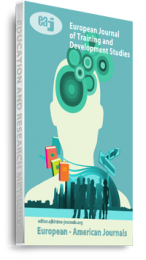This study effect of instructional resources on student’s achievement in physics in secondary schools in Ebonyi State of Nigeria is a quasi-experimental design that deals with pre-test, post-test, non-equivalent, control group. Intact classes were used for the study. The participants for the study were drawn from four secondary schools in Ebonyi State. The schools were selected through simple random sampling. All the physics students of SS II in the selected sample schools were used for the study. Two schools out of the four schools were assigned to the treatment group while the remaining two were assigned to the control group. Two packages were developed by the researcher for control and treatment groups. Three research questions and three hypotheses guided the work. One instrument was used for the study, i.e. physics achievement test (PAT). Mean and standard deviations were used to answer the research questions while ANCOVA was used to test the null hypotheses. The following findings were made, physics students taught with instructional resources achieved higher and better than those taught without instructional resources. There is no gender bias in terms of students achievement in physics. Among other recommendations, both male and female students should be encouraged through counselling to see physics as one of the subjects needed for the country technological break through.
Keywords: Achievement, Instructional resources, PAT, Quasi-experimental, control group, physics

